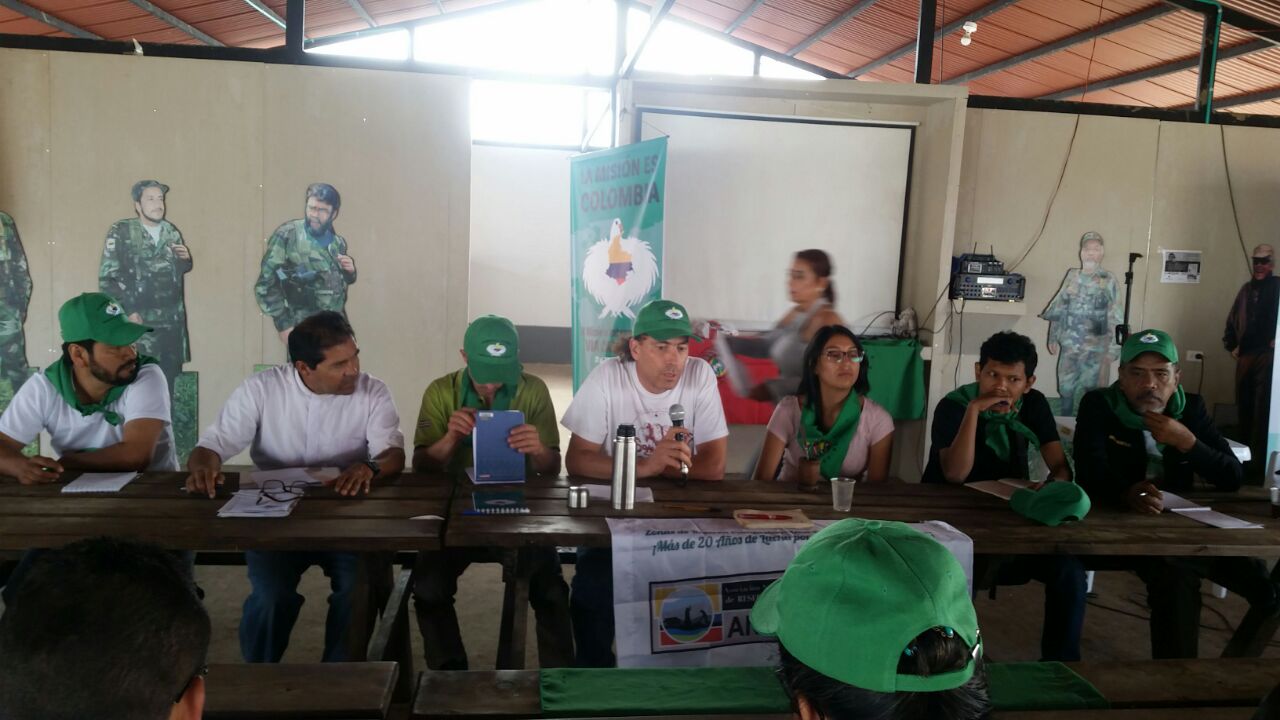PRESS RELEASE
European peasant movement mission to Colombia: what is the outcome so far of the peace agreements between the FARC and the government?
Back from a mission to Colombia and following their meeting yesterday with the European Union’s External Action Service in Brussels, delegates of the European Coordination Via Campesina (ECVC) discuss the implementation of the peace agreements between the FARC.EP and the Colombian government- this in the framework of the assistance provided by La Via Campesina alongside the European Union and FAO in the Agreements, in particular for the points on Comprehensive Rural Reform, closely linked to the Crop Substitution Program.
Brussels, 8 December 2017 – The peace agreements signed on 24 November 2016 were welcomed with hope and relief. However, one year after they were signed, their implementation on the ground hasn’t materialized, sowing disenchantment and discouragement in rural areas.
A fundamental point in the ratified agreement between FARC and the Colombian government is the implementation of comprehensive agrarian reform (point 1 of the Agreements), an issue at the root of the armed conflict. But land reform is lagging far behind. The legalization of property and the redistribution of farmland to ex-combatants is not being carried out, preventing those concerned from building an economic future as a community or individuals. Furthermore, communities are very often inaccessible by land, thus preventing the commercialization and access to agricultural production. In order to maintain their economic viability, the people may be forced to work in the production of illicit crops – the result of the negligence on the part of the Colombian government in the voluntary replacement of illicit crops (point 4), as provided for in the agreements. This regularly leads to conflicts during military and police interventions for the forced eradication (tearing or chemical destruction) of the plants. In this sense, our delegation denounces the Trump program for the eradication of 50,000 ha of coca, which runs counter to the Peace Accords. Solutions to the problems of illicit crop cultivation are crucial to building a country with healthy communities free of crime and corruption.
The delegation also wants to points out to the alarming continuation of human rights violations, assassinations, threats and insecurity – instigated by right-wing and extreme-right groups – which hinder the re-incorporation of ex-combatants and the improvement of peasant life. Lastly, it denounces the obstacles to political participation (murder of community leaders in the 16 special electoral districts).
For Véronique Léon, member of the Confédération Paysanne, French trade union member of ECVC, “the FARC is fulfilling its commitments, but the government by, among others, delaying the implementation of the agreements, is jeopardizing the peace process. In this sense, the EU’s role before Colombian authorities seems crucial to us. We expect the EU to make a real commitment to monitoring compliance and denounce shortcomings.”
The delegation also calls on the EU to disinvest from export-oriented agro-industrial or extractivist projects. Instead the EU should support peasant agriculture and economy, as well as development initiatives at the local level, which would contribute in reducing the poverty of rural populations.
CONTACT:
Geneviève Savigny (ECVC Coordination Committee): +33 625 55 16 87
Véronique Léon (Confédération Paysanne – France – ECVC): +33 622 16 13 99
Andres Arce Indacochea (ECVC press contact): +32 489 55 22 97
Note to editors:
During a second international mission from 21 to 27 November 2017, organised by La Via Campesina (LVC) and the CLOC (Coordinadora Latinoamericana de Organizaciones del Campo/Colombia), 26 delegates mandated by their member organisations from 19 countries (Latin America, Asia and Europe) met those people on the ground in Colombia most concerned by the peace agreements: peasants, ex-combatants, rural populations, indigenous and Afro-Colombian communities. The delegation was able to comment critically on key issues such as access to agricultural land, health, security, education, access to work, social justice and culture.

